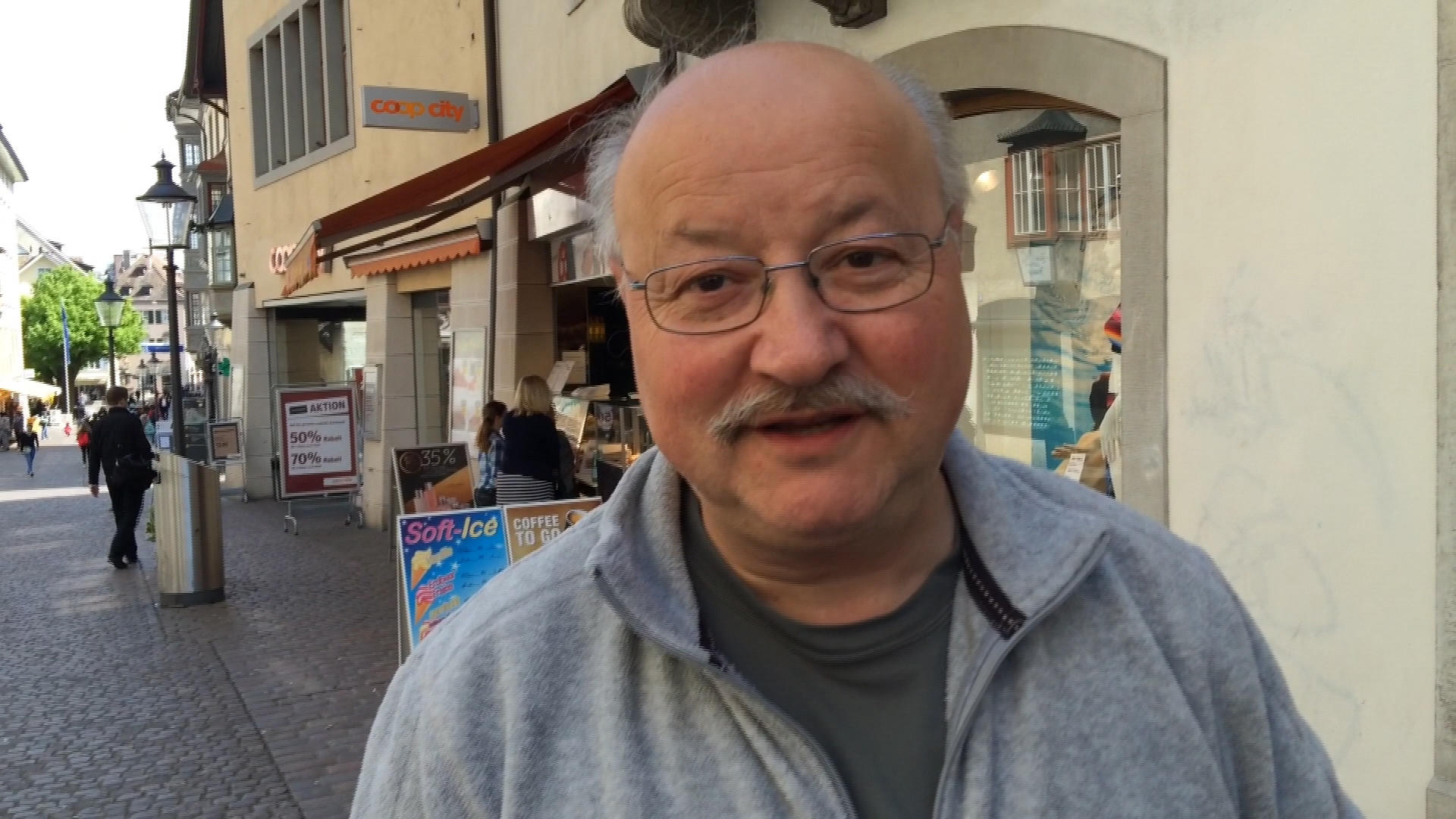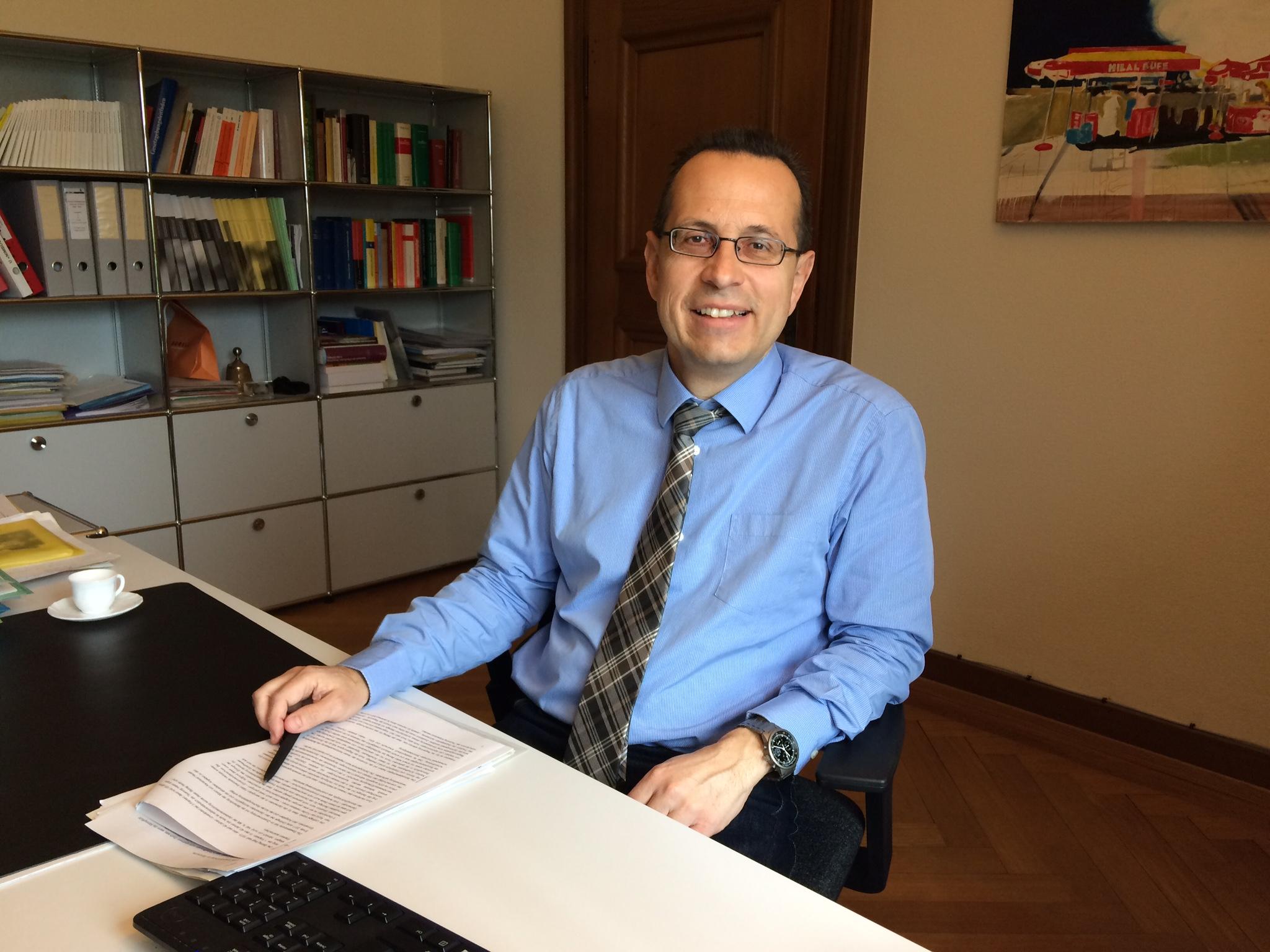The Swiss canton where voting is ‘in the blood’

Schaffhausen is the Swiss champion of direct democracy according to voter turnout. What is it that makes people in this northeast corner of Switzerland so politically involved?
Take any vote or election in Switzerland – it ends with the rest of the country looking enviously towards to the small canton of Schaffhausen. Here 65% of residents eligible to vote, do so. This sits in stark contrast to the rest of Switzerland, where voter turnout has lagged behind for decades at the relatively low level of 45%. This means that a minority is making decisions for the population, going against the principle of direct democracy.
So what is different in Schaffhausen? It is compulsory to vote in the canton, and has been so for 140 years. Those refusing to vote are fined: in the 1970s the amount was CHF1 ($1), it then rose to CHF3, and since last year it has been CHF6. So it’s of a symbolic nature. In fact, people still have three days to cast their ballot after the vote if they want to avoid a fine.
Pride
People may not feel forced to vote, but they still have a sense of pride about it.
“We are very proud of our high voter turnout in Schaffhausen,” confirms Thomas Minder, a senator for the canton in the Swiss parliament.
This sentiment is echoed by two old ladies sitting on a park bench in the old town. “Every Schaffhausen citizen should be proud of it,” says one.
But the 51-year-old owner of a home furnishing store says it’s not pride but pressure that makes people vote. It’s not the fear of being fined that makes her cast her ballot but the fact that everyone has always voted in her family. “It was a completely normal thing,” she said.
It’s a similar situation for the 17-year-old carpenter’s apprentice rolling a cigarette at the bus stop. Politics is discussed over the kitchen table in his house. Next year he’ll turn 18 and can vote for the first time.
“I’m looking forward to voting. Why? Because finally I can have a say,” he said. But he thinks he might sometimes not vote.
The middle-aged man enjoying a sandwich says he doesn’t always vote. “Voting is a bit tedious, we have to go to the voting booths much too often,” said the warehouse worker. But he is nevertheless proud of the high turnout. “It’s part of us,” he said.

More
What locals think about compulsory voting
“Almost implanted in us”
Voting fatigue is, according to a University of Zurich study from 2012, one of the main reasons why overall Swiss voter turnout is lower than in many other countries.

Another reason is the fact that voting practices are not being passed down along the generations. If parents don’t vote or only sporadically vote, their children will do the same and so will their children. This doesn’t seem to be the case in Schaffhausen.
“Down the generations, the duty to vote has become a civic duty. Taking part in the political process is almost implanted in us now,” said Christian Ritzmann, the deputy cantonal chancellor, whose department oversees votes.
The canton’s manageable size – its population stands at 80,000 – is one reason for this, believes Ritzmann. Politicians are closer to the people than in larger cantons, you might even meet them on the street or sit next to them on the bus. This encourages people to get politically involved, he said.
Dear minister…
But this involvement does not go beyond the ballot box, remarks Minder. “Like in many other communities in Switzerland, it is hard to find the next generation of politicians at communal level,” he said.
Robin Blanck, editor-in-chief of the Schaffhauser Nachrichten, the small canton’s only newspaper, agrees. But adds: “I think that politics is at least discussed more intensively in this canton though.” Readers’ letters are published twice a week on page two of the paper. “We can get around 100 letters if it’s a controversial topic,” he says.
The two old ladies on the park bench take part in political discussions amongst themselves, via letters and by contacting politicians directly.
“If I get upset about a political decision, I head to a computer,” says one of the ladies, who is 79 years old. “Sometimes I send a letter straight to a local government minister or even to a Swiss cabinet minister. Perhaps it doesn’t make any difference. But I find that you should say what you think – if you can.”
In Western Europe: Belgium, Luxembourg, Liechtenstein, the Swiss canton of Schaffhausen, Cyprus and Greece (not enforced). Compulsory voting legislation exists in some form in most countries of Central America and South America with varying degrees of enforcement.
In Australia compulsory voting was introduced in 1924, mainly as a response to lower voter turnout. In Singapore it was introduced in 1959. Fiji and Thailand gained much later in 1997.
(Source: Electoral Commission Britain, The International Institute for Democracy and Electoral Assistance)
In a nutshell: Switzerland is not the cradle of the people’s initiative but has merely been an important launching pad for the spread of this direct democratic tool.
Would you be more inclined to vote if you were facing a fine or should it be left up to the individual? Tell us what you think in the comments section below.
(Translated from German by Isobel Leybold-Johnson)

In compliance with the JTI standards
More: SWI swissinfo.ch certified by the Journalism Trust Initiative











You can find an overview of ongoing debates with our journalists here . Please join us!
If you want to start a conversation about a topic raised in this article or want to report factual errors, email us at english@swissinfo.ch.